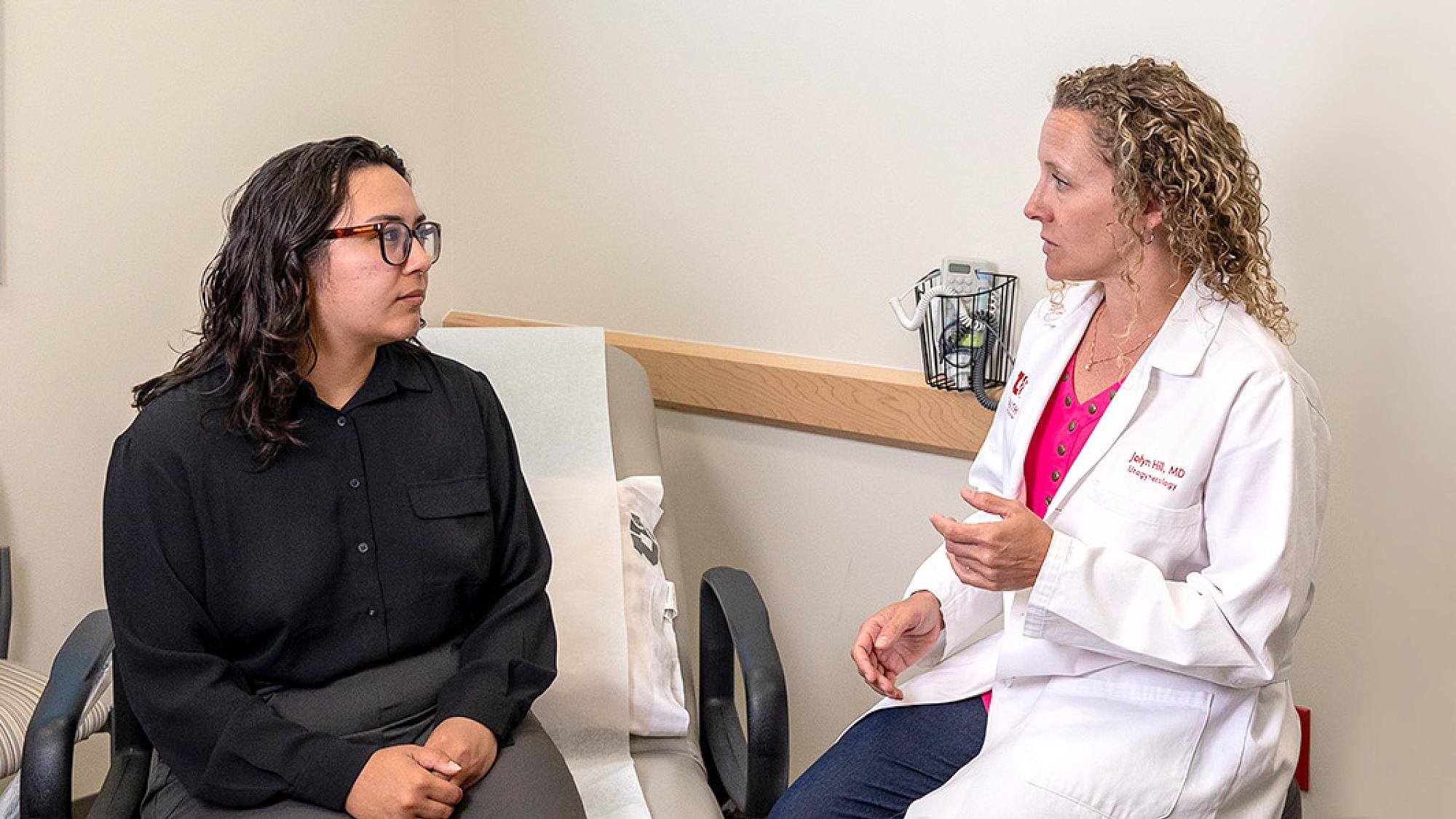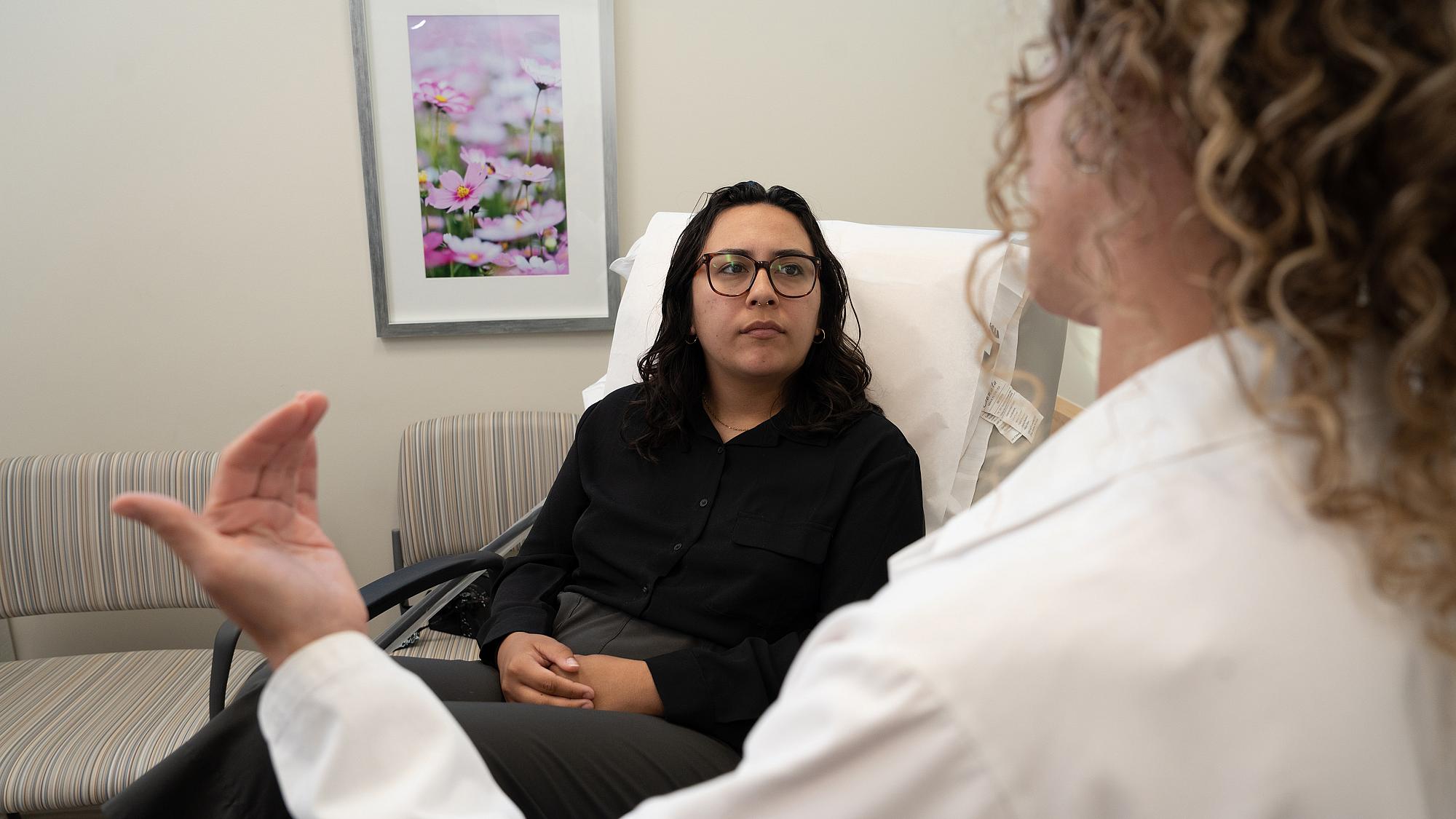What Causes Incontinence in Females?
Urinary incontinence or bladder leakage occurs when urine (pee) comes out of your bladder when you do not want it to (involuntarily). It is more common in women for the following reasons:
- Age–As women get older, their pelvic floor muscles weaken and make it harder to prevent leakage. Involuntary bladder contractions also increase as women get older, which can lead to incontinence.
- Anatomy–In women, the urethra is a small tube that goes from the bladder to the top of the vulva (external female genitalia). On the outside, the urethral opening is located above the vaginal opening. The urethra is surrounded by several different muscles that control the flow of urine out of the body.
- Pregnancy–Hormonal changes during pregnancy can affect a woman’s ability to control her bladder. Pressure and the added weight of a fetus during pregnancy can also lead to incontinence.
- Childbirth–The urethra and surrounding pelvic floor muscles can get damaged during a vaginal delivery. The risk of injury is higher with a larger baby, extended pushing time, or use of forceps. Multiple deliveries can also cause repeated injury to the pelvic floor and urethra, increasing the risk of stress incontinence.
- Menopause–When the estrogen levels in a woman’s body drop after menopause, the tissues in the bladder and urethra become thinner and weaker, increasing the risk of urinary incontinence.
Types of Urinary Incontinence in Women
Urogynecologists categorize incontinence based on the underlying causes and symptoms. There are several different types of urinary incontinence in women:
- Stress incontinence—This is when urine leaks out during an activity or event that increases pressure in your abdominal and pelvic areas. Activities may include coughing, sneezing, jumping, or aerobic exercises.
- Urgency incontinence—This condition occurs when your bladder muscle strongly contracts before you can get to the bathroom, causing leakage. When your bladder contracts before it’s actually full, it sends a signal to your brain that you need to urinate. As a result, you'll need to empty your bladder a lot. This condition is also called an overactive bladder.
- Functional incontinence—This is a physical or mental impairment that makes it hard to get to the bathroom when you feel the urge to urinate.
- Incontinence related to a medical condition—Medical conditions that contribute to female urinary incontinence include urinary tract infections and constipation.
- Overflow incontinence—This type of incontinence occurs when your bladder is so full, it has to spontaneously empty to prevent an injury to the bladder muscle. This occurs if you cannot empty your bladder completely and may cause you to dribble urine a lot or have a large episode of urine leakage.
Urinary Incontinence Symptoms
Many women experience some signs of bladder leakage at one time or another:
- Feeling a sudden or urgent need to go to the bathroom
- Feeling like you can't empty your bladder all the way when you use the bathroom
- Urine leaks out when you can't get to the bathroom fast enough
- Urine leakes out with activities such as exercise, laughing, sneezing, or coughing
It's important to discuss these symptoms with your primary care provider or gynecologist if your incontinence issues continue to negatively impact you:
- Affects your quality of life
- Causes you to avoid social or family activities
- Gets worse after an event, such as a surgery
- Puts you at higher risk of falling when you rush to the bathroom
Your provider will be able to diagnose your urinary incontinence and help you understand how to manage your condition. They can also diagnose or rule out underlying conditions to find treatment options.
Why Choose University of Utah Health?
Our Women’s Health Services specialists provide exceptional care for women of all ages. Our specialists include fellowship-trained urogynecologists who are up-to-date on the latest research and treatments. We see patients from throughout the Mountain West for everything from routine care to rare conditions and diagnoses. Our urogynecologists are experts at helping women manage pelvic floor disorders. We are capable of offering a full spectrum of treatments that are individualized for each patient’s unique needs. We focus on providing women with all the information to understand their health and make the best care decisions.
Find a Urogynecologist
Female Urinary Incontinence Treatment
The first step to finding the best urinary incontinence treatment for you is to get an accurate diagnosis. There are multiple treatments available for women who experience bladder leakage:
- Pelvic floor physical therapy—Physical therapy (PT) exercises can strengthen the muscles in your pelvic floor. Our pelvic floor physical therapists will teach you how to effectively use your muscle to seal the urethra when you have an urge to urinate.
- Female urinary incontinence devices—A pessary is the most common bladder leakage device. You or your provider insert these small rings into your vagina to stabilize the urethra and provide extra support. Pessary-like devices are also available over-the-counter. Talk to your provider about which option is best for you.
- Medications—There are multiple approved medications that can treat the symptoms of incontinence. However, each has risks and side effects to consider and carefully discuss with your provider.
- Percutaneous tibial nerve stimulation (PTNS)—This non-surgical treatment for overactive bladder is similar to acupuncture. Your urogynecologist inserts a small needle in the nerve near your ankle bone that connects to the sacral nerve that connects to your bladder. Your urogynecologist will send mild electrical stimulation through the needle to your nerve. Each session lasts for 30 minutes and occur once a week for 12 weeks.
- Botox injections—Botox injections relax your bladder muscle to reduce urgent feelings of needing to urinate. Most women feel relief within a few days, and it can last for up to six months. Treatments can be administered every three to 12 months if needed.
Can Urinary Incontinence Be Cured?
For many women, bladder leakage can be cured. However, it depends on the patient and the underlying cause. Some women can successfully manage symptoms with some lifestyle changes, and do not require extensive treatment. Others need surgery to cure their bladder leakage issues.
Urinary Incontinence Surgery
When other treatment options for female urinary incontinence do not work, surgery might be an option. The right surgery depends on the type of urinary leakage:
- Stress incontinence surgeries include a sling made designed to support your urethra. These surgeries have a high rate of effectively curing bladder leakage. Your urogynecologist may also discuss urethra bulking to strengthen the urethra which is often done in our clinic.
- Urgency incontinence surgery involves a device implanted permanently in one of your sacral nerve roots. It’s similar to a pacemaker for your bladder. You can turn it on and off or increase the intensity to regulate bladder urgency signals. Your urogynecologist may adjust the settings to improve your response.
What Happens If Incontinence Is Left Untreated?
Many women experience bladder leakage and do not get treatment. For some, the symptoms stay the same over time and do not cause serious problems. For others, the symptoms worsen gradually or quickly. Severe bladder leakage may cause complications like skin breakdown, ulcers, or infection from wearing a soiled adult diaper for too long. The cost of purchasing products for bladder leakage, such as pads or diapers, can also get expensive. Surgery and other treatments may reduce your symptoms and save you money.
Make an Appointment With a Urogynecologist
Call 801-213-2995 to make an appointment with a urogynecologist at University of Utah Health. Many patients see our urogynecologists after a referral from their primary care provider or OB/GYN. You do not need a referral to see our specialists, but some insurance plans require a provider referral to see a specialist.
Most of the care available from our urogynecologists is covered by insurance. Contact your insurance provider if you have questions about your coverage and whether U of U Health is in your network.
Resources for Our Patients
When Should You See a Urogynecologist?
Do you have trouble with an overactive bladder, feel pressure in your pelvis, or feel like your vagina, bladder, uterus, or rectum has dropped, causing a bulge or pressure? You do not have to suffer through these symptoms. They are treatable.
5 for Life Screenings
A big part of staying healthy is detecting diseases early. We make it easy for you to get lifesaving tests for heart disease, breast cancer, cervical cancer, skin cancer, and colon cancer in one convenient visit.
Postpartum and Pelvic Floor Complications
As a mother-to-be or a new mom, there’s a lot you are juggling – life with a new baby, lack of sleep, breastfeeding, and adapting to other changes to your body. Our new clinic for postpartum (after childbirth) pelvic floor problems at University of Utah Health is specifically designed to address pelvic floor issues that may occur before or after childbirth.






